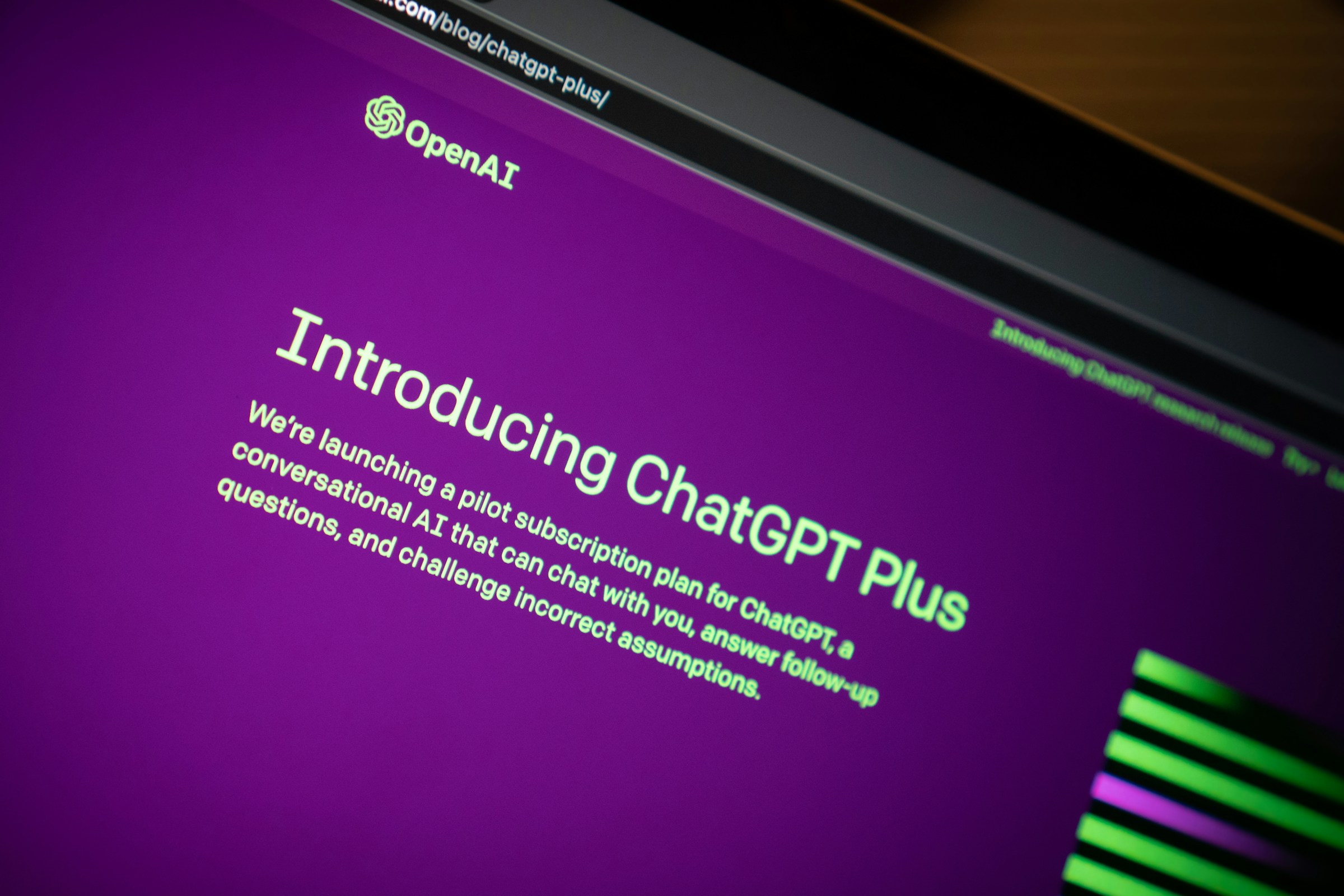< Back
How to Cite ChatGPT in MLA Style for Research Papers
Declan Gessel
Oct 15, 2024
Citing ChatGPT can be tricky. You might be wondering how to cite a chatbot for your essay. But as AI becomes more integrated into our work, we must learn to give credit where it’s due. Perhaps you’re working on a research paper and using AI to find sources for your essay, like ChatGPT. But you’ll want to cite ChatGPT and other AI models correctly in your bibliography or works cited page. This guide will cover the ins and outs of citing ChatGPT and similar AI models in MLA and other common citation styles so you can use them confidently in your academic work.
If you’re just using AI to find sources for Essay, you may want to check out JotBot. This AI-powered tool can help you identify credible sources for your paper and cite them correctly.
Table Of Contents
Why Properly Citing ChatGPT in Your MLA Paper Matters

Your Work Needs Transparency
When you cite ChatGPT in your MLA paper, you’re giving readers insight into the origins of your ideas. AI outputs aren’t the same as human analysis, so you must draw a line between your thoughts and the machine’s responses. By doing this, readers can better grasp the source of your information. This transparency is crucial, especially when using AI tools that pull from diverse datasets. It’s about being upfront and transparent.
Academic Integrity Isn't Optional
Skipping citations for ChatGPT can lead to accusations of plagiarism, and that’s no small matter. Even though ChatGPT isn’t a person, its content still needs recognition. Treating it as an unnamed source is dishonest. Proper citations ensure you follow the rules and keep your work above board. Academic integrity is non-negotiable, and citations help you stay on the right side.
Make Graders' Lives Easier
When professors read your paper, they need to know what parts of your original work are based on ChatGPT and which are on ChatGPT. This distinction is critical for fair grading, especially in assignments where analysis is front and center. You must cite any portion of your content if the AI shaped it. This clarity allows instructors to assess your contributions accurately and fairly.
Join the AI Discussion
By citing ChatGPT, you’re engaging in the ongoing dialogue about AI’s role in academics. These tools are becoming more prominent, and acknowledging their influence in your work is a step toward understanding their place in research. This citation isn’t just a formality but part of the larger conversation about AI’s integration into academic writing.
Protect Your Future Self
Regulations around AI use in academia are still taking shape. By citing ChatGPT, you safeguard your work against future scrutiny. This transparency is your best defense if questions about your paper arise down the line. Proper citations ensure your work holds up over time, regardless of how academic standards might shift.
Related Reading
• How To Find Good Sources
• Using AI For Research
• Citing ChatGPT
• How To Find Academic Sources
• How To Cite AI In MLA
• AI For Research Paper Writing
• Essay Sources
• AI In Academic Writing
• Most Reliable Sources For Research
• How To Get ChatGPT To Cite Sources
How to Format ChatGPT Citations in MLA Style

Nailing MLA Citations for ChatGPT
Citing ChatGPT in MLA style differs from citing a book or article. Start by naming the source: “ChatGPT” serves as the author. Follow this with an “AI language model” description to clarify the source type.
Why ChatGPT Version Matters
Cite the version next. Since ChatGPT updates often, write something like “OpenAI, ChatGPT (October 2023 version).” Different versions might give different responses, which helps readers know which one you used.
Adding the Access Date
MLA style requires the date you accessed the information because ChatGPT's responses change over time. Put this after the version details. The access date shows when the content was generated.
Formatting Tips for Your Bibliography
Use quotes around the AI-generated response you’re citing. Always include the access date to show when the info was generated. MLA’s flexibility lets you cite non-traditional sources like AI text, keeping your research credible as the academic world evolves.
Are you looking for more help? Jotbot is your go-to AI writing assistant for everything from note-taking to finding sources. Join 500,000+ users worldwide and write more brilliantly, not harder. Start finding sources that are accessible with Jotbot's source finder today. Sign in with Google and get started in seconds.
Why Citing ChatGPT Matters

Academic Integrity: Respecting Intellectual Property
In academic writing, giving credit where credit is due isn't just polite—it's essential. When you cite sources, including AI like ChatGPT, you avoid plagiarism and respect intellectual property. This practice is a bedrock of trust in academia. Want your research taken seriously? Make sure you're playing by the rules.
Credibility: Strengthening Your Arguments
Ever built a house of cards? That's what research feels like without solid sources. By citing ChatGPT, you show that your work isn’t built on a shaky foundation. Readers will see your claims are backed by reliable information, including insights from AI. This adds a layer of credibility that makes your work more convincing.
Traceability: Letting Readers Follow the Trail
Consider trying to solve a mystery without any clues. Citations act as your breadcrumb trail, allowing readers to trace information back to its source. When you cite ChatGPT, you allow others to see how AI fits into your research puzzle. This makes your work more transparent and more accessible to engage with.
Understanding AI's Role: Highlighting the New Players
AI’s influence in academia is growing, and citing tools like ChatGPT illuminates its role. By acknowledging AI in your citations, you're prompting conversations about how these technologies shape research. This awareness helps us understand AI's benefits and limitations, encouraging thoughtful discussion.
Transparency: Pulling Back the Curtain
Transparency in research is like a clear window—you can see everything inside. When you cite ChatGPT, you’re upfront about its role in your work. This helps readers know which parts came from AI and which are your ideas. It’s an honest approach that builds trust with your audience.
Engaging with AI Ethics: Sparking Important Conversations
AI is everywhere, and it’s raising ethical questions. Citing AI-generated content encourages you and your readers to consider the implications of using technology for research. This kind of reflection is crucial for understanding our responsibilities regarding AI. It’s about fostering a conversation that matters.
Enhancing Research Discussions: Pushing the Conversation Forward
By including citations for AI-generated content, you’re not just following the rules—you’re contributing to the future of research. This can spark interest and further investigation into how AI tools can complement traditional methods. It’s about pushing the conversation forward and making your work part of something bigger.
The Essential Components of an MLA Citation for ChatGPT

Citing ChatGPT in MLA style requires attention to detail. Here's what you need to include:
Author
Start with "OpenAI" as the author. This is the organization behind ChatGPT. Listing the author helps readers identify the source.
Title of the Work
Create a descriptive title for your ChatGPT interaction. If there's no formal title, make one up. For example, "Response to Inquiry on Research Methods" works if you ask about research methods.
Website Name
Use "OpenAI" again for the website name. This identifies the source platform.
Publication Date
The publication date is when you accessed the information. This is important because AI outputs can change over time.
URL
Provide the main URL for OpenAI, like www.openai.com/chatgpt. This directs readers to the platform for similar content.
Here’s how you would format these components into an MLA citation:
Basic Format
OpenAI. "Response to Inquiry on Research Methods." OpenAI, Date of Access, URL.
Example Citation
OpenAI. "Advice on Writing Research Papers." OpenAI, 12 Oct. 2024, www.openai.com/chatgpt.
Why Proper Formatting Matters
Citing sources correctly is more than just a formality. It ensures consistency across your work. This uniform structure helps readers navigate your references easily. Plus, well-formatted citations reflect professionalism and enhance readability, allowing readers to quickly locate your sources and understand the context of your information.
By carefully considering these components and how they fit together, you can ensure that your citations for ChatGPT meet MLA standards, maintaining the integrity and credibility of your research.
Supercharge Your Writing with Jotbot
Ready to make your writing process more manageable? Jotbot, an advanced AI writing assistant, is here to help. Join 500,000+ writers, students, teams, and researchers worldwide to write more, write better, and write faster with Jotbot's AI writing assistant. Write more brilliantly, not harder, with Jotbot's AI writing assistant. Start finding sources that are accessible with Jotbot's source finder today. Sign in with Google and get started in seconds.
Tips for Citing ChatGPT Effectively in Your Research Papers

Get Specific with Your Titles
When citing ChatGPT, be specific with your titles. Make sure they capture the essence of the interaction. For example, if you asked about solutions for climate change, a title like "Response to Inquiry on Climate Change Solutions" works well. This keeps your citations clear and informative.
Mark the Date You Accessed ChatGPT
Always include the date you accessed ChatGPT. AI content can change over time, and noting the access date gives readers a sense of when the information was relevant. Use the MLA format for dates, like 12 Oct. 2024.
Don’t Just Trust—Verify
Cross-check the information you get from ChatGPT with reliable sources. This ensures that the content is accurate and trustworthy. For backup, look to academic journals, textbooks, or credible websites.
Match Your Citation to Your Research Context
Tailor your citation to fit the context of your research. If your paper is about AI in education, highlight how ChatGPT supports learning. This makes your citation more meaningful and relevant.
Stay Updated with the MLA Handbook
Keep up with the latest edition of the MLA Handbook for any changes in citing digital sources. This resource will help you stay current with citation formats and guidelines.
Build a Works Cited Entry
Create a Works Cited entry at the end of your paper for your ChatGPT citations. This will make it easy for readers to find your sources and show transparency in your research.
Be Consistent with Formatting
Stick to MLA formatting rules throughout your paper. This includes font style, size, margins, and citation format. Consistency improves readability and shows professionalism.
Ask for Feedback
Ask a teacher, professor, or peer for feedback if you need clarification on your citation. They can help you ensure your citation meets MLA standards and offer guidance on improving your approach.
Related Reading
• Best AI Tool For Research
• Reference Finder
• Best AI For Research
• How to Cite AI
• AI For Literature Review
• Websites Like Google Scholar
• AI That Cites Sources
• Best Academic Search Engines
• Academic Research Software
• How To Use Chat GPT For Research
• Best Research Tools For Students
Common Mistakes to Avoid When Citing ChatGPT

Stay Sharp with Citation Formatting
When citing ChatGPT, precision is critical. MLA style has specific rules for in-text citations and the Works Cited page. Overlooking these can make your citations look better. For instance, make sure the source's title is in quotation marks and include the access date. Proper formatting not only makes your work appear polished but it also adds authority.
Don’t Leave Out Critical Details
Providing all the necessary information is a must. Always include the interaction's title, the AI's name (ChatGPT), the access date, and the platform used. Please complete all of these to ensure your citation is complete and valuable. Being thorough helps readers find your source and boosts the credibility of your work.
Avoid Solely Relying on AI for Research
ChatGPT is an excellent tool for sparking ideas, but it shouldn't be your only source. Relying just on AI can limit your perspective. To create a comprehensive paper, cross-reference information from ChatGPT with reputable scholarly sources. This approach enriches your research and enhances its academic rigor.
Understand AI Limitations
ChatGPT can sometimes provide incorrect, outdated, or biased information. Recognizing these limitations helps you critically evaluate the content before citing it. This is crucial for maintaining the integrity of your research and ensuring you’re presenting accurate information to your readers.
Keep Citation Styles Consistent
Mixing citation styles can confuse your readers. Stick to MLA format throughout your research, including all citations and references. Consistency aids in reader comprehension and reflects your commitment to scholarly standards.
Give Context to ChatGPT Interactions
Citing ChatGPT without giving context can leave readers puzzled. Describe your question and how the response relates to your research topic. This will make your citation more informative and show how the AI's reaction contributes to your argument or analysis.
Stay Updated with Citation Guidelines
Citation guidelines have changed, so keep up with the latest version of the MLA Handbook. Ignoring updates can lead to outdated practices that affect your citations' quality. Regularly reviewing the guidelines keeps you informed about best practices in academic writing.
Don’t Forget the Works Cited Entry
In-text citations need to be paired with a complete entry in the Works Cited section. Missing this can confuse and lessen your work's credibility. A well-organized Works Cited page guides readers to your sources and is crucial in academic writing.
Write Smarter With Jotbot's Source Finder — Start Writing for Free Today
Consider having a digital assistant that handles tedious tasks like finding sources, summarizing videos, and taking notes. Jotbot does all that. This powerful tool also writes outlines and completes essays. Whether you're a student, researcher, or professional writer, Jotbot improves your work. Join over 500,000 users and start writing smarter. Sign in with Google and get started in seconds.
How to Cite ChatGPT: A Simple Guide
Citing AI like ChatGPT can be tricky, but it’s easier. Use the correct format to give credit appropriately. Mention the model, version, and date of access. Proper citation helps readers understand your sources. Adapt these guidelines to your preferred style, like APA or MLA.
Interactive Tools: Get Hands-On with Jotbot
Jotbot offers interactive features to make your writing process more engaging. Use direct questions to keep your readers interested. These tools help you create a more dynamic and appealing piece. Engaging elements can boost your writing from good to excellent.
Trust and Reliability: Jotbot’s Credibility
Trust is crucial when using AI tools. Jotbot operates with a focus on credibility and reliability. It offers verified sources and accurate information, ensuring your work maintains integrity. Knowing your source is reliable lets you focus on writing rather than fact-checking.
Writing Style: Keep It Simple and Direct
Good writing is clear and concise. Jotbot helps you achieve this by cutting out unnecessary words. Use varied sentence lengths and structures to keep your writing engaging. Avoid complex language that might confuse your readers. Simple English is always the best choice.
Related Reading
• Elicit AI
• Scholarcy AI
• Scisummary
• AI Research Tools
• Sourcely
• Consensus AI Tool
• Mendeley Alternatives
• Cite This For Me Alternative
• Scholarly Sources Examples
• Academic Sources Examples
• How to Find Scholarly Sources
• List of Scholarly Sources
• Examples of Peer Reviewed Sources
• How to Cite a Book
• How to Cite an Article
• How to Cite
• How to Cite a PDF
• How to site a website in text
• How to Cite a Lecture
Write more, better, faster.
Your personal AI document assistant












